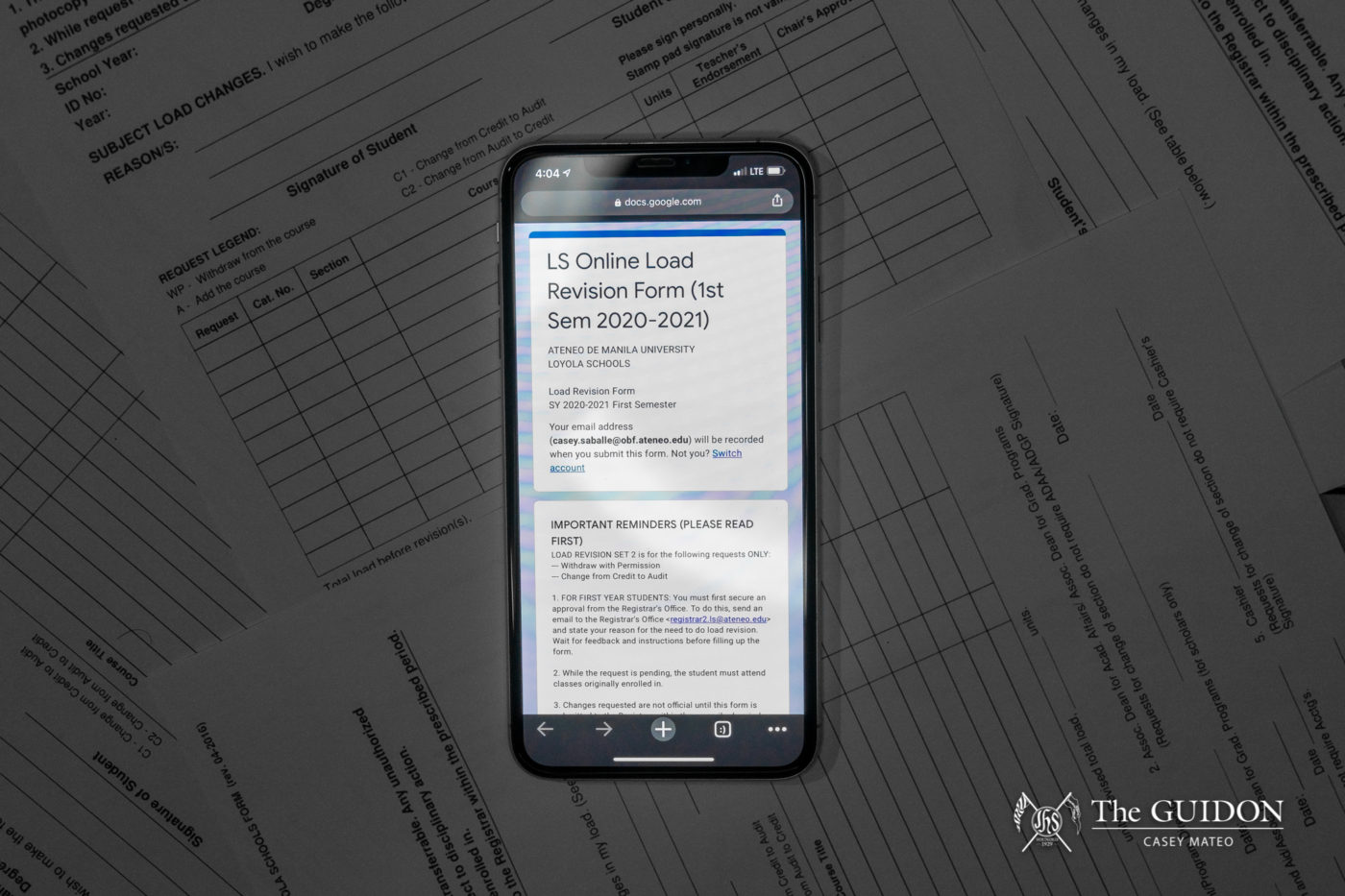THE OFFICE of the Registrar (RO) released a memo on September 10 stating that they received an all-time high of over 3,500 load revision requests for the first semester of AY 2020-2021. This comes following the administration’s decision to conduct classes and registration processes fully online amid the COVID-19 pandemic.
Students experienced difficulties with enlistment due to the late release of the Course Schedule Template, which divides the number of courses per quarter for a student’s respective major program.
Ateneo Registration Committee (RegCom) Assessment Supervisor Patrick Buendia said that the delays of the Course Schedule Template significantly contributed to the sudden increase in load revision requests because students adjusted their class schedules in line with the template.
Creation of the template
Although the Course Schedule Template was only released on August 24, Associate Dean for the Core Curriculum (ADCC) Benjamin Tolosa Jr. said that there have been plans to create the template since May. He explained that the Course Schedule Template was made based on the Adaptive Design for Learning that the Ateneo de Manila Institute for the Science and Art of Learning and Teaching developed. “It’s better that students take three or four courses [per quarter] at the maximum instead of six or seven, which is what you have during the regular semester,” Tolosa said.
He said that a template containing the quarter division of core subjects was sent to the department chairs and program directors as early as June 13. The ADCC gave the departments until June 3o to split their major courses into quarters.
By August 7, the ADCC had finalized the Course Schedule Template, which took into account the availability of instructors and the number of students in each class. The ADCC then sent the final Course Schedule Template to the school deans, department chairs, and program heads, assuming that this will be relayed to students under their respective departments. Despite this, some students were unaware of the template.
“Now, our sense was that siguro, that was not the practice in the past, that departments will inform their students about the whole distribution of courses. Kasi this is the first time we’re doing it,” Tolosa explained.
RegCom Public Relations Officer Austin Gonzales added that the release of the Course Schedule Template was “a bit too late.”
“We all came to the resolution that next time, for these kinds of announcements, we really do have to announce it earlier, so that we can disseminate the info [clearer]. And so we can [also] answer as many inquiries as possible and not in a short time frame,” he said.
Overloaded system
Buendia noted that the increased amount of load revision requests resulted in an overloaded system.
University Registrar Joaquin Julian Agtarap explained that the load revision’s online system was initially not prepared to handle the high number of requests. This is also why they tried to limit the number of accepted requests per day.
He added that students also filed more requests due to the convenience of the online process. “You just have to make an application online and it’s supposed to move. That contributed significantly to the explosion of requests,” Agtarap said.
To efficiently process the numerous requests, Agtarap said that the load revision process was modified. Students can now join their Canvas classes as long as the Office of the Associate Dean for Academic Affairs (ADAA) and RO have approved their request.
“If we had waited for the accounting of the finances of all those load revision [requests], it would probably be unfinished until October, which would defeat the purpose of load revision because the first quarter would be done,” he explained.
Improvements for the next semester
According to Tolosa, the second semester will also be divided into quarters to ensure that students are able to learn in a “conducive way.” He also reminded professors to be mindful of the coursework they assign to their students.
“Even [if] we have only three or four courses per quarter, the amount of assessments or requirements [should] also be consistent with the [competence] they are trying to achieve,” he said.
In regard to processing load revision requests, Agtarap said that the RO will be coordinating with the ADAA, the Information Technology Resource Management Office, the Central Accounting Office, and some department chairs to discuss how to improve or redo the load revision process. However, he also advised students to be “more circumspect” in their reasons for filing load revision requests.
“If you’re going to make a request, make sure it’s out of real necessity. Not just because you prefer this teacher over this teacher or this time slot over this time slot,” Agtarap commented.
Gonzales also encouraged the offices involved with enlistment to communicate better with their student arms to avoid delays. “What I noticed is that offices tend to keep to themselves this online registration. They are trying to fix their problems on their own. […] We thought that maybe it would be much smoother or more efficient if we could help each other out,” he said.







